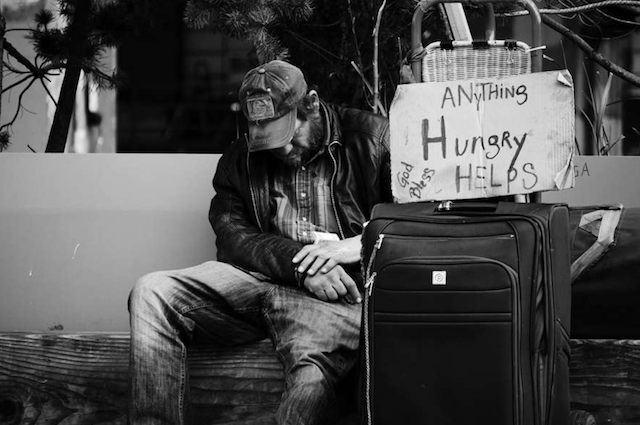Vatican City, May 16, 2020 / 09:52 am (CNA) – The coronavirus emergency is also causing a food-related crisis, Vatican officials said Saturday, encouraging people to do their small part to help those who are going hungry.
“What happens now with the coronavirus crisis is it is increasing food-related problems,” Fr. Augusto Zampini-Davies said during a livestreamed press conference May 16.
“We know the value of a society is determined by how we treat the poorest, the most vulnerable, so what are we going to do for all these people, who, apart from the health issues, are suffering from hunger or food-related problems?” he asked.
Zampini-Davies is adjunct secretary of the Vatican’s Dicastery for Promoting Integral Human Development. He said the COVID-19 emergency is affecting food availability on many levels of society: for example, children who rely on school lunches are going hungry while schools are closed, and supply chains are being impacted by restrictions on imports and exports.
There are also millions of people who have lost their jobs or are being prevented from working by measures intended to control the health emergency, he noted, and this often means going hungry.
“What happens to the millions of people who are helped neither by the market nor by the state, but we are forcing them to stay home?” the priest asked. “What happens to these people? We cannot force them to stay at home without any support.”
Responding to a question about Pope Francis’ proposal for a “universal basic wage,” Zampini-Davies said it is “one tool” that has been used in the past to help confront emergency economic situations.
“As a tool, it has its pros and cons,” he said, but “if we want to promote health for everybody, we need to do something.”
“We cannot remain indifferent,” he said. “All the structures of society are being challenged at the moment, so what we are trying to do is to implement the preferential option for the poor, which is a fundamental element and an ethical imperative.”
A food crisis is one of the issues the Vatican’s new COVID-19 Commission is considering how to combat in the wake of the coronavirus.
The commission is under the auspices of the Dicastery for Promoting Integral Human Development, headed by Cardinal Peter Turkson, and is intended to work for about one year.
Turkson noted May 16 that “COVID-19 started as a healthcare issue; but it has affected drastically the economy, jobs/employment, lifestyles, food security, the primary role of Artificial Intelligence and internet security, politics, governance and policies (nationalistic or open and in solidarity), research and patents.”
“Hardly any aspect of human life and culture is left unscathed by this pandemic.”
The commission is “an organ of the Holy See to occupy itself with the multifaceted COVID-19 pandemic.”
Zampini-Davies said FAO estimates 800 million people around the world were already “chronically hungry.”
“However … there is hope, because this terrible situation can be an opportunity to change,” he said.
He made some suggestions of actions to be taken on the international level, but also highlighted how “ordinary people” can help by reducing food loss and waste, and by changing their diets to include more seasonal food and fewer high polluting products.
He pointed to St. Therese of Lisieux for her example that “every small gesture of care counts” and noted that the pandemic has shown “we do not need as many things as we think. We can do more with less.”
Aloysius John, secretary general of Caritas Internationalis, the largest Catholic global aid network, said: “as the Holy Father told us, at this tragic moment of human history I want the Church to be present through the work of charity and if you do not do it who will do it?”

